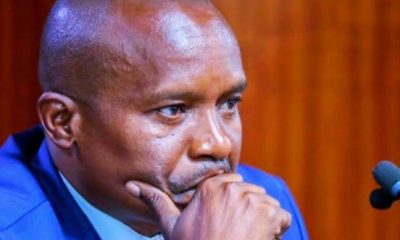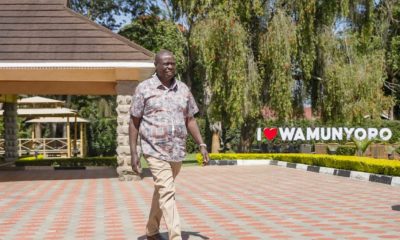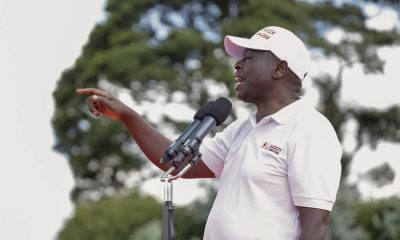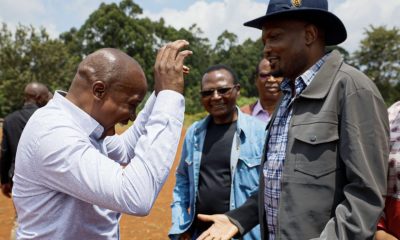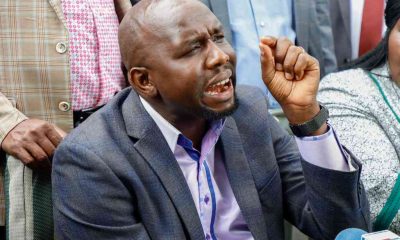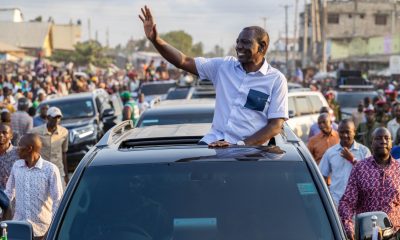Politics
“You Cannot Go to Streets and Expect Police to Kiss You” – Kenyans Remind Gachagua of Past Remarks on Protest Crackdowns
In July 2023, while serving as Deputy President under William Ruto’s administration, Gachagua had defended brutal police action against protesters with the now-infamous statement: “You cannot go to the streets destroying property and expect police to come kiss you.”
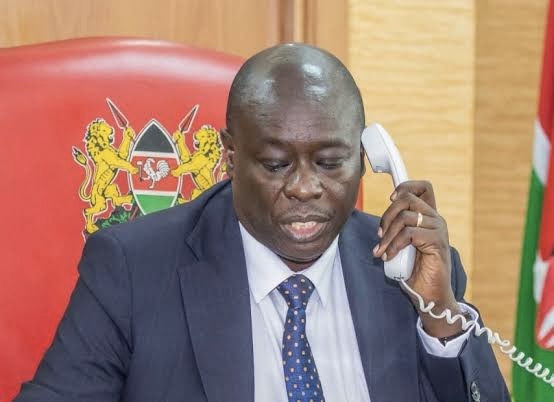
Former Deputy President’s current criticism of police brutality contrasts sharply with his previous support for violent suppression of demonstrations
NAIROBI, Kenya – Former Deputy President Rigathi Gachagua finds himself in an uncomfortable spotlight as Kenyans resurrect his past statements defending police brutality against protesters, following his recent criticism of the government’s violent crackdown on demonstrations.
The controversy erupted this week after Gachagua condemned the government’s handling of peaceful protesters who were demonstrating against the killing of teacher and blogger Albert Ojwang.
In a strongly-worded statement on his X account, Gachagua described the police action as “one of the lowest moments of our post-independence Kenya.”
However, Kenyans were quick to remind the former Deputy President of his dramatically different stance just 12 months ago, when he was still in government and actively defending similar police actions.
The Contradiction Exposed
(Click to watch the video)
10ab55b756bf5e4d1f931ed066eceb15c61a00fe
In July 2023, while serving as Deputy President under William Ruto’s administration, Gachagua had defended brutal police action against protesters with the now-infamous statement: “You cannot go to the streets destroying property and expect police to come kiss you.”
Speaking during a tour of Murang’a County alongside President Ruto, Gachagua had urged security officers to “stay put and not be bothered by criticism from the opposition,” effectively giving police carte blanche to use force against demonstrators.
The stark contrast between his past and present positions has not gone unnoticed by the Kenyan public, who have flooded social media with reminders of his previous statements supporting the very actions he now condemns.
During his tenure as Deputy President, Gachagua positioned himself as President Ruto’s primary defender, taking a hardline stance against any form of dissent.
He famously declared: “Whoever is planning something against President Ruto should be prepared to face me because that is my job. My work is to protect him.”
His transformation from government cheerleader to fierce critic began after his impeachment in October 2024, following what he described as a betrayal by his former boss.
Since then, Gachagua has emerged as one of the administration’s harshest critics, exposing what he calls the government’s “corruption and nepotism.”
Recent Events Spark Fresh Criticism
The latest controversy stems from the government’s response to protests following the death of teacher Albert Ojwang.
During the demonstrations, a vendor named Boniface Mwangi Kariuki was shot at point-blank range by a police officer and remains hospitalized after undergoing a second surgery to remove bullet fragments.
Gachagua’s response to this incident marked a complete reversal of his previous position: “It is uncivilized to sink our nation into an international shame by a clueless regime that has no value and dignity for human life,” he posted on social media.
The revelation of Gachagua’s contradictory statements has sparked intense public debate about political opportunism and the authenticity of his current opposition stance.
Many Kenyans have questioned whether his newfound concern for human rights is genuine or merely a product of his political circumstances.
Social media users have been sharing clips and quotes from his time in government, highlighting statements where he urged police to continue their work without being “bothered by criticism from protesters and the opposition.”
This isn’t the first time Gachagua’s past statements have come under scrutiny since his impeachment.
His journey from being Ruto’s “main defender” to launching the Democracy for the Citizens Party (DCP) to challenge the president in 2027 has been marked by a complete ideological reversal on multiple issues.
During his time in office, Gachagua had even defended the government’s heavy expenditure on presidential travel and maintained that President Ruto would enjoy “a smooth sail to power” in 2027, despite opposition criticism.
The controversy goes to show a broader issue in Kenyan politics about the consistency and credibility of political leaders who dramatically shift positions based on their current circumstances.
It also underscores the power of social media and public memory in holding politicians accountable for their past statements.
As Gachagua continues to position himself as a champion of human rights and democratic freedoms, his past endorsement of police brutality serves as a reminder of the political calculations that often drive such transformations.
Kenya Insights allows guest blogging, if you want to be published on Kenya’s most authoritative and accurate blog, have an expose, news TIPS, story angles, human interest stories, drop us an email on [email protected] or via Telegram
-

 Business4 days ago
Business4 days agoCooking Fuel Firm Koko Collapses After Govt Blocks Sh23bn Carbon Deal
-

 Business3 days ago
Business3 days agoABSA BANK IN CRISIS: How Internal Rot and Client Betrayals Have Exposed Kenya’s Banking Giant
-

 Politics2 weeks ago
Politics2 weeks agoYour Excellency! How Ida’s New Job Title From Ruto’s Envoy Job Is Likely to Impact Luo Politics Post Raila
-

 Business2 weeks ago
Business2 weeks agoMinnesota Fraud, Rice Saga, Medical Equipment Deal: Why BBS Mall Owner Abdiweli Hassan is Becoming The Face of Controversial Somali Businessman in Nairobi
-

 Americas3 days ago
Americas3 days agoEpstein Files: Bill Clinton and George Bush Accused Of Raping A Boy In A Yacht Of ‘Ritualistic Sacrifice’
-

 News2 weeks ago
News2 weeks agoKenya Stares At Health Catastrophe As US Abandons WHO, Threatens Billions In Disease Fighting Programmes
-

 News2 weeks ago
News2 weeks agoDCI Probes Meridian Equator Hospital After Botched Procedure That Killed a Lawyer
-
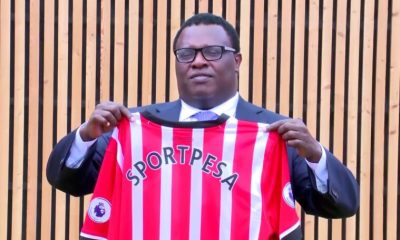
 Investigations1 week ago
Investigations1 week agoPaul Ndung’u Sues SportPesa for Sh348 Million in UK Court, Accuses Safaricom Boss of Sh2.3 Billion Conspiracy

